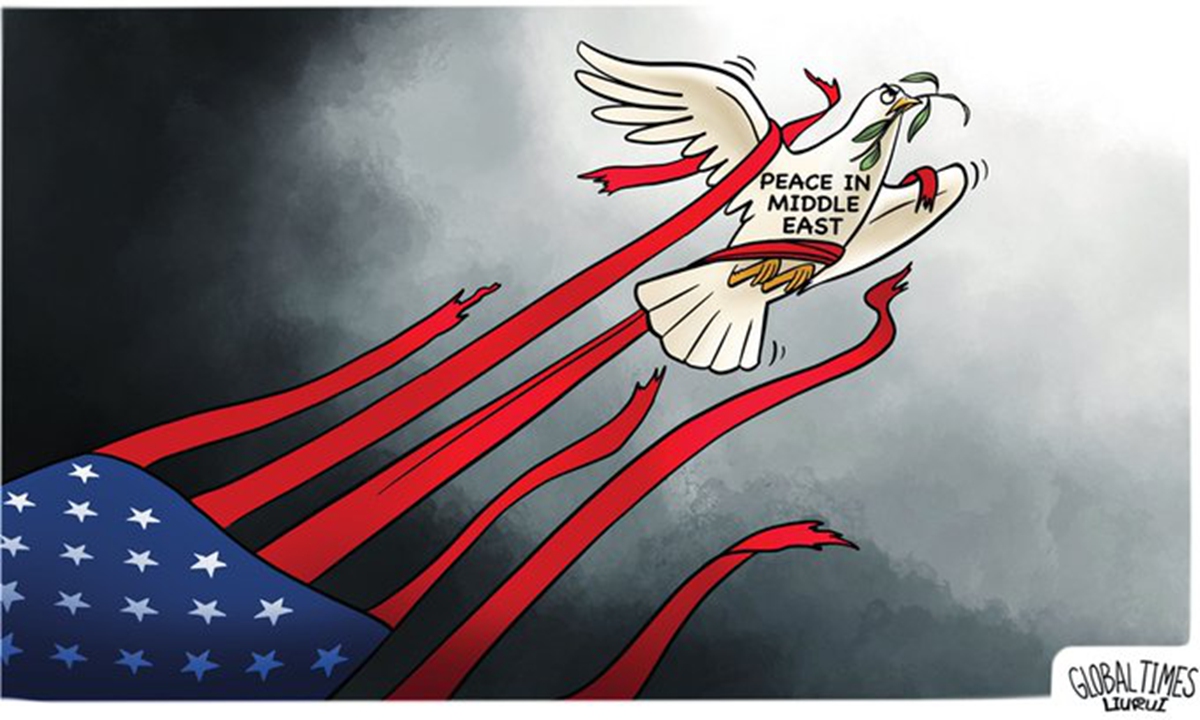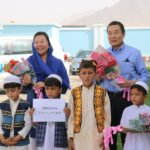The Arab League on Sunday agreed to reinstate Syria’s membership, which is another exhilarating news to the Middle East recently. This is the latest progress after the emergence of a reconciliation wave caused by the resumption of diplomatic ties between Saudi Arabia and Iran. It marks the beginning of a correct path toward a political solution to the Syrian crisis – “continue direct dialogue with the Syrian government in order to reach a comprehensive solution.” In this sense, Syria’s return to the Arab League after a 12-year suspension symbolizes a new height of solidarity and self-development among Arab countries, and brings more confidence in peace to the Middle East which was viewed as a “powder keg” of the world. We sincerely feel happy for Syria and the Arab League.
Many analyses hold that there are two major reasons for Syria’s return to the Arab League: First, the big earthquake that struck the Turkey-Syria border region in early February has accelerated Arab countries’ steps to restore diplomatic relations with Syria; second, Saudi Arabia and Iran who were opposed each other in the Syrian crisis have achieved historic reconciliation under China’s mediation, providing direct impetus for the Arab League’s decision. Last month, Special Envoy of the Chinese Government on the Middle East Issue visited Syria and had an in-depth exchange of views with Syria on seeking a political settlement of the Syrian issue and facilitating Syria’s return to the Arab League. The Chinese Foreign Ministry expressed congratulations on Syria’s return to the Arab League on Monday, noting that as a sincere friend of Syria and other Arab states, China welcomes and supports Arab solidarity and will continue to work relentlessly to that end. China’s attitude also represents the general position of the international community.
Over the past 12 years, Syria has experienced heartbreaking hardships. In 2011, the Syrian crisis erupted amid the “Arab Spring.” At that time, the Arab League suspended Syria’s membership under the pressure from the West. Subsequent military and political intervention by external forces has further worsened the situation in Syria, resulting in catastrophic consequences that continue to this day. During this period, countries in the Middle East have suffered from war, social division, and frequent conflicts, making their desire for unity, peace, and development stronger than ever before. The Syrian Foreign Ministry emphasized “dialogue, mutual respect, and the common interests of Arab countries” in its latest statement, which reflects the common desire of regional countries.
From any point of view, Syria’s return to the Arab League is a happy matter, but there are exceptions. The US and Britain openly expressed “criticism” and claimed that Syria “should not be readmitted.” Bloomberg reported that Arab League readmitted Syria after more than a decade of isolation “in defiance of US;” The Wall Street Journal claimed that US influence is waning in the Middle East. It appears that Washington seems to have an overwhelming reluctance and non-acceptance of the independence and autonomy shown in the Middle East. Of course, it will feel uncomfortable. The tragic stories that have occurred in Syria and the Middle East in recent years are largely due to Washington’s Middle East policy of “playing one side against the other.” In its eyes, the desperate plight of ordinary families and their lack of sufficient food are just dust on the boots of the US military and not worth mentioning.
But the fact once again proves that when the shadow cast by Washington becomes smaller, the dawn of peace becomes bigger. Arab countries have not lost anything due to their independent foreign policies, but have achieved dialogue, reconciliation, and won respect. Egyptian Foreign Minister Samer Shoukry said on Sunday that “The different stages of the Syrian crisis proved that it has no military solution, and that there is no victor nor defeated in this conflict.” This can be seen as a subtle response to Washington’s past practices of stirring up regional conflicts and abusing military forces. This view is becoming increasingly common in today’s international community. Some American media sourly said that the Arab League’s decision to readmit Syria represents a rejection of US interests in the Middle East as Arab countries forge policies independent of Western concerns. But they really got it wrong this time. It is not that Middle Eastern countries are “independent of the West,” but rather the fact that the West is isolating itself from the entire international community.
Not long ago, on the 12th anniversary of the Syria war, United Nations Secretary-General Antonio Guterres called for “renewed energy” to be channeled into peace efforts. Syria’s return to the Arab League is a good start for a political solution to the crisis, but there are still many obstacles ahead. For instance, the US’ illegal unilateral sanctions on Syria have created many hindrances for further cooperation in the region. We firmly support united and strong Arab countries, and also hope to work with the international community to bring the sunshine of peace and the hope of development to every corner of the world, especially in places shrouded by the shadow of hegemony.













